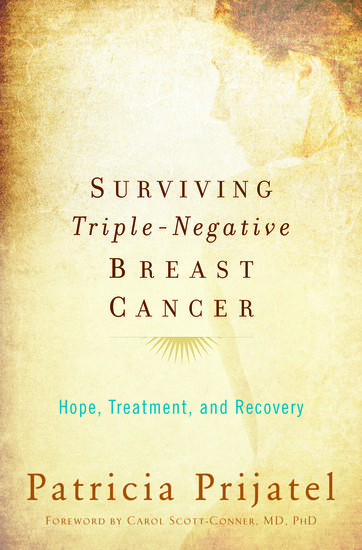By Patricia Prijatel
People who have lived through cancer just want to get on with their lives — head into the future like everybody else, free of cancer, free of its memory. That’s why the labels others affix to us can make us especially testy.
Take, for example, the label survivor. Please. It look me a while after diagnosis to understand why this word annoyed those who have survived. Finally, when I started to be lumped into that category, I got it. The word defines us by our disease. And how can we move past this diagnosis if we are forever labeled according to it?
Some women prefer the word thriver, and I get that. It is active; it shows we are fully engaged in life. It’s a positive, affieming word. Survivor, by contrast, means we exist. We didn’t die. Not dying is a good thing — an extremely good thing — but it is not the only thing. If it is, then we are not really living, are we?
Still, I need no label. I am Pat. I had breast cancer and I, thank God, got over it.
What do we call survivors of heart attacks? I call them Hank and Herb and Mike. What do we call survivors of strokes? I call them Jean and Gary. Cancer need not be in a category of its own — the big scary disease. Those of us who have weathered its storms want to move beyond it. We’re wives, mothers, daughters, grandmothers, aunts, sisters, friends, lovers. We’re proud of these roles and find these labels wonderful. They make us fit in, feel a part of the world, of society, of our families, our communities.
Survivor sets us apart, and we’re tired of being special in a cancer sort of way.
We’re also writers, doctors, teachers, editors, students, artists, photographers, computer specialists, managers, volunteers, and tote a laundry list of other accomplishments. We have worked to earn these labels and encourage you to see us for what we have done, not what was done to us.
Then there is the issue of our courageous battle. I had several people tell me that I was so courageous while I went through treatment. Really? It is not courage to put one foot in front of another and just do what you need to do, usually while terrified and confused. Some of us do it with less complaint than others, but that is not courage. It is just good luck: a positive attitude, perhaps a better diagnosis, smoother response to treatment, or a support system that keeps us grounded.
To me, courage refers to soldiers in Afghanistan, or the person who jumps into a raging river to save a woman whose boat has capsized, or politicians voting for what they know is right but might not get them reelected.
And, frankly, it applies more to our caregivers like my husband, who never let me say, “I have cancer,” correcting me to, “You had cancer.” Or the parents of children with cancer who have to fight for proper care and deal with the financial hit while supporting a confused and sick child. Or the children watching their mother lose her hair and reminding her how beautiful she is and how much they love her, all the while hiding their own fear.
The problem with calling cancer patients courageous, again, is that it sets us apart from everybody else. We are the Person with Cancer. How scary. How tragic.
Does an obituary say a person died of a courageous battle with heart disease? Why not? Why is cancer elevated to such a stage? And why does it bother us?
It’s a problem because when you are constantly told you need courage to get through this journey, it makes the road seem that much rougher, the climb that much steeper, the destination that much less clear. What’s more, what happens if we don’t beat the disease? Were we not brave enough? Did we not fight hard enough? Are we the biggest of the big losers?
All we want is to be normal again. To be just a person who once got sick but hopes not to get sick again. Someone who is trying to move on, leaving cancer far behind, kicking dust in its nasty old face.
Patricia Prijatel is author of Surviving Triple-Negative Breast Cancer, published by Oxford University Press. She is the E.T. Meredith Distinguished Professor Emerita of Journalism at Drake University. She will do a webcast with the Triple Negative Breast Cancer Foundation on 16 October 2012. Read her previous blog posts on the OUPblog or read her own blog “Positives About Negative.”
Subscribe to the OUPblog via email or RSS.
Subscribe to only health and medicine articles on the OUPblog via email or RSS.
View more about this book on the ![]()
![]()


[…] so difficult to find when trying to talk about cancer, earthquakes, rape) are felt in the flesh. Others have written about the insidious effects of cancer on language (being introduced to pinkwash was a […]